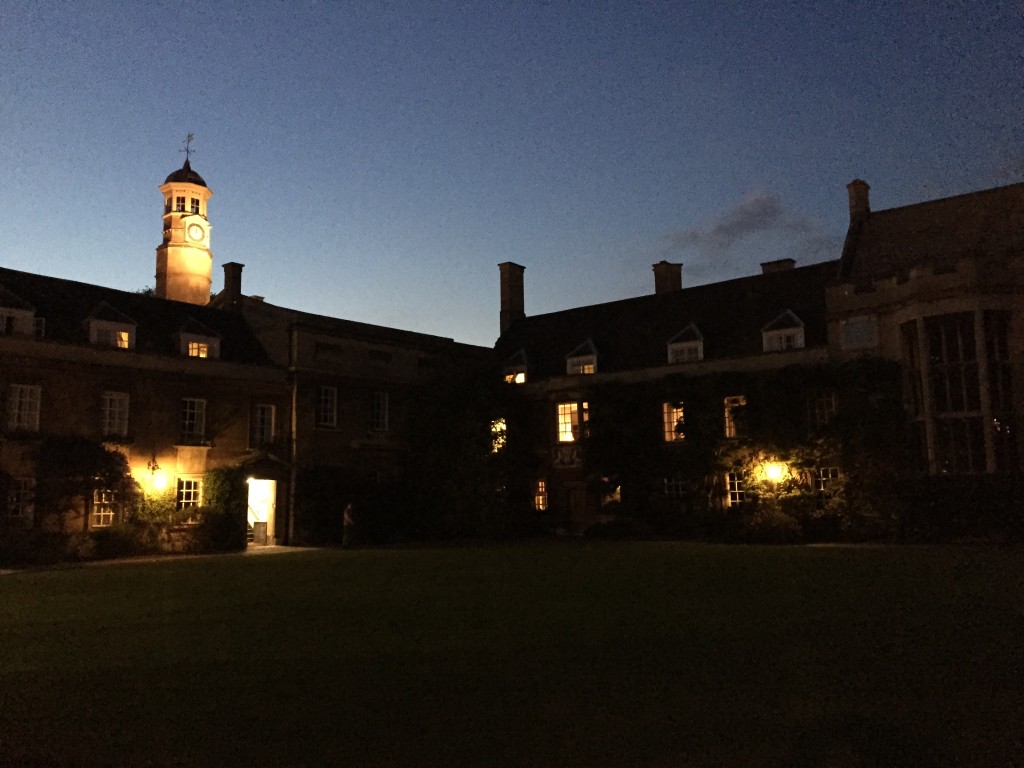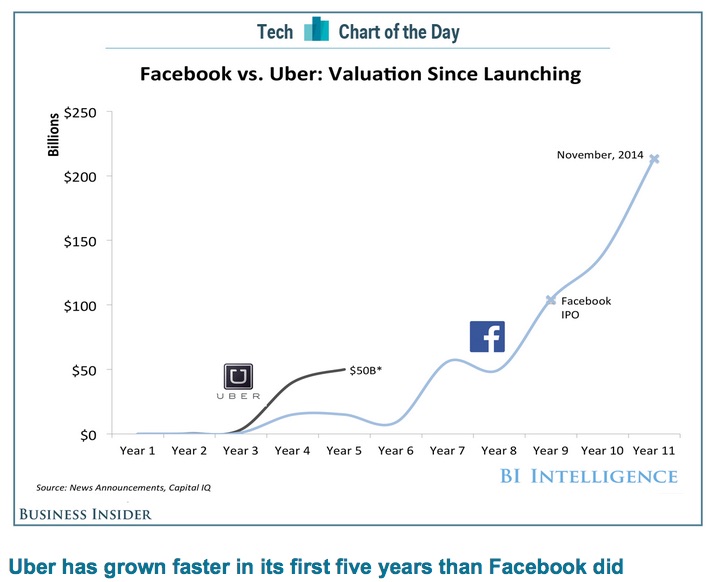NSA surveillance is going to cost the U.S. tech sector a lot more than originally thought.
The Information Technology and Innovation Foundation (ITIF), a Washington, D.C. -based think tank that advocates for policies that nurture technology innovation, has released a new report in which it raises its previous estimate of how much surveillance by the U.S. intelligence community could cost U.S. tech companies.
In 2013, the non-partisan group estimated that the NSA-related revelations stemming from Edward Snowden’s 2013 leak would scare away foreign customers in the cloud computer sector to the tune of as much as $35 billion in business. The new report says that figure is too low, and that the economic reverberations will “likely far exceed” that initial $35 billion estimate, although the report wasn’t more specific on a final figure.
Remembering Charles Kennedy
Very nice, generous tribute in the Economist:
Bad times for his party, the union, Britain’s place in Europe: Mr Kennedy’s death speaks to all these. Yet for the many who mourn him, it is above all dreadfully sad, because he was delightful, and in fact this was the main reason for his success. He was, extraordinarily in politics, without malice. He was never, despite his remarkable precociousness, pompous. His jokes, which were frequent, were usually aimed at himself, the institution he served, or both.
Narrating a television documentary on the House of Commons last year, he glanced up, on camera, at a mosaic of St Andrew that towers over Central Lobby. The patron saint of Scots, he quipped, had been positioned to signal the way to the bar. Though he was a political insider—an MP at 23, for goodness sake—Mr Kennedy’s plain good humour always suggested he had a foot in that ruder soil, the real world, which matters most. And that, O politicians, is why he was loved.
Amen.
Evidence-based anti-terrorism. Now that *would* be a good idea…
… as Gandhi said of Western civilisation. But it’s not what we’ve got. In fact the only paper I can find which attempts to do some kind of cost-benefit analysis on the ‘war on terror’ comes from the Cato Institute. Since the 9/11 attacks, US taxpayers have blown about $1.6 trillion on this so-called global ‘war’ — and that doesn’t include money for the Department of Homeland Security. Timothy Egan has a good OpEd piece in the NYT about this. Sample:
Most of us are going to live to the actuarial average of 78, and never experience terrorism as anything other than the energy drink that keeps Wolf Blitzer going in the absence of real news. (This week, he was breathless over an apparent hoax, while “Breaking News: Airline threats not credible” flashed on the screen, contradicting his reason for doing the story.)
Consider the various threats to life. The sun, for starters. The incidence of melanoma, the most lethal form of skin cancer, has doubled in the last 30 years. More than 9,000 Americans now die every year from this common cancer. I also lost a friend — 30 years old, father of two — to malignant melanoma.
Cancer is the second leading cause of death, just behind heart disease. Together, they kill more than a million people in this country, followed by respiratory diseases, accidents and strokes. Then comes Alzheimer’s, which kills 84,000 Americans a year. And yet, total federal research money on Alzheimer’s through the National Institutes of Health was $562 million last year.
To put that in perspective, we spent almost 20 times that amount — somewhere around $10 billion — on the National Security Agency, the electronic snoops who monitor everyday phone records. For the rough equivalent of funding a breakthrough in Alzheimer’s, the government has not prevented a single terrorist attack, according to a 2014 report on the telephone-gathering colossus at the N.S.A.
Mikko Hypponen’s TED talk on surveillance
Apropos my column about the minimal impact of the USA Freedom Act, I forgot to mention that the proportion of the world’s population to which the provisions of the Act do not apply is about 96 per cent. This point was made ages ago by Mikko Hypponen in this excellent TED talk.
Thanks to the readers who wrote to point out that Mr Hypponen is Mikko, not Nikko. Apologies for mistake.
Ed Snowden has definitely had an impact but…
This morning’s Observer column:
For anyone still in doubt about the impact of Edward Snowden’s revelations, it might be instructive to review what has been going on in the US Congress over the last few months, with legislators grappling with bills aimed at curbing the surveillance capabilities of the NSA and other federal agencies. In the end, in a classic congressional farce, there was a brief intermission in the NSA’s data-gathering capabilities, after which the Senate passed a bill to end the agency’s bulk collection of the phone records of millions of Americans.
At one level it’s a significant moment: one in which – as a Guardian leader writer put it – “an outlaw rewrites the law”. And in a few other countries, notably Germany, Snowden’s revelations do seem to be having a demonstrable impact – as witnessed, for example, by the Bundestag’s inquiry into NSA surveillance within the Federal Republic.
These are non-trivial outcomes, but we shouldn’t get carried away…
The ghosts of C.P. Snow
I had dinner the other night in Christ’s and as I was walking out through Front Court, with the Master’s Lodge in the far corner, I was suddenly reminded of C.P. Snow’s novel The Masters and fell to musing that, at least architecturally, not much had changed since the events recorded in the book. I re-read it recently, and concluded that, as a novel, it’s rather feeble. But as a sociological study of a part of Cambridge society in the 1930s it’s actually rather good, and I suspect pretty accurate.
Where there’s bits there’s brass
My Observer review of Nathaniel Popper’s book about Bitcoin, Digital Gold.
Two things stand out from Mr Popper’s narrative. The first is confirmation of how long and tortuous is the road from a technological breakthrough to real-world acceptance. Anybody who thinks that bringing a technology to market is easy has never done it. The other is the colossal damage done to the prospects of bitcoin (and indeed of cryptocurrencies generally) by the Silk Road online black market, a platform known for selling illegal drugs that used bitcoins as its means of exchange, which was eventually shut down by the US authorities. Given that a currency – analogue or digital – is only as good as the trust that people place in it, the Silk Road fiasco gave governments and the media the spin that they needed – that cryptocurrencies are really only for bad people. Which is a shame, because it may be that they are just what a networked world needs.
You can’t always get what you want
My ADAPT Centre lecture at Trinity College, Dublin on April 29, 2015. Text here.
Yahoo Pipes, RIP
Sigh. One of the (few) great things that Yahoo did. And they’re dumping it.
Most heartbreakingly for a lot of developers, Yahoo Pipes is getting shut down at the end of August. Yahoo Pipes is a service that let people build custom web applications that could pull in all kinds of data from all over the internet.
When Pipes launched back in 2007, it was widely heralded as ahead of its time. Tech expert Tim O’Reilly called Pipes “a milestone in the history of the internet.” It was sort of a precursor to Mashery, which helps companies manage and blend data from different sources (including public web sources), and If This Then That (ifttt), which lets people create simple “recipes” like “text me the weather every morning” by combining different data sources and apps.
But Yahoo never seemed to know what to do with it; it never got as many users as the company would have liked, and so now it’s going to be cut.
My colleague Tony Hirst did some great stuff with Pipes. I even built stuff with it myself.



